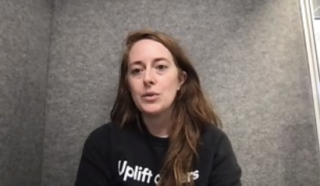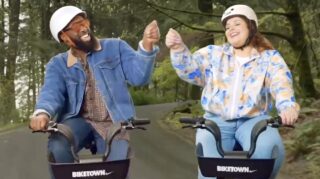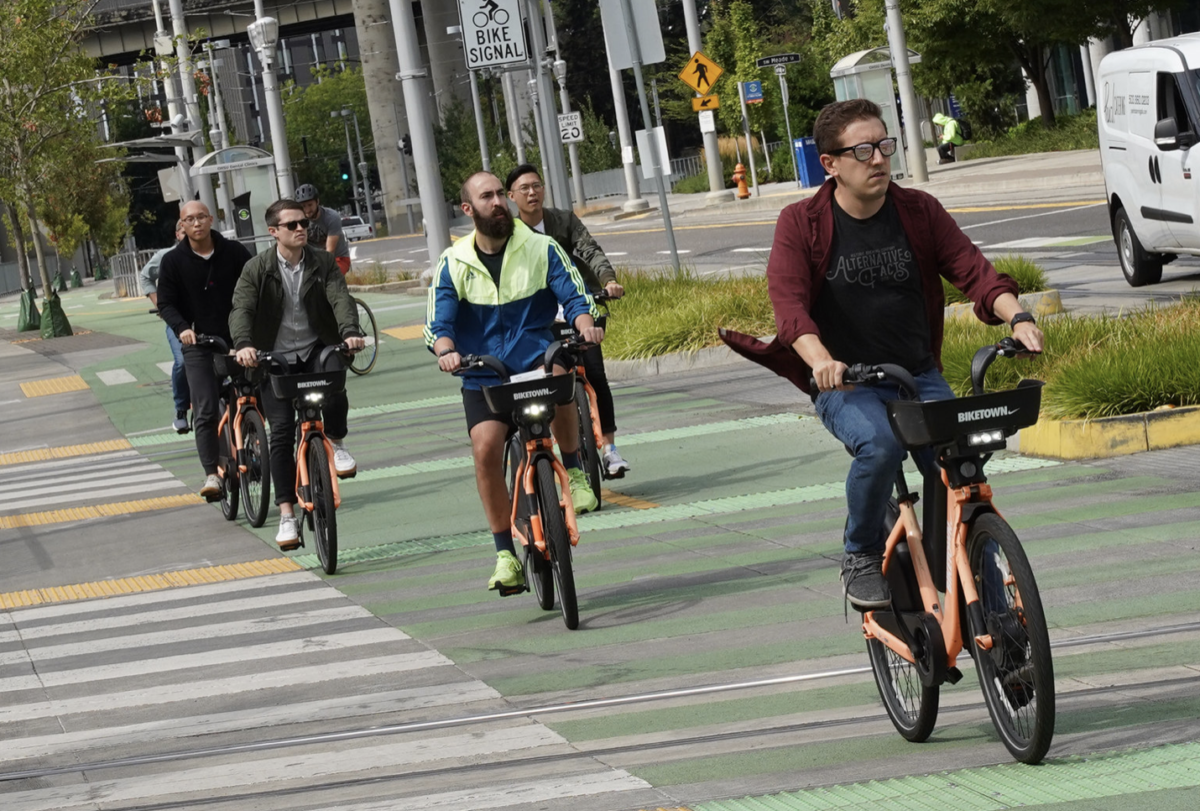Micromobility options are increasing in Portland and across the country, with bike and scooter shares growing from novel pilot programs to mainstays in city transportation networks. Here in Portland, Biketown is the main player in micromobility with its expanding network that stretches beyond the city center.

This expansion is one way Biketown and the Portland Bureau of Transportation are working to improve access to bike rentals for all Portlanders so the program can have the most value to fill gaps in our current system. During a panel discussion at the 2022 Oregon Active Transportation Summit hosted by The Street Trust, policy experts shared their thoughts on how to further improve equity in the realm of micromobility and what they think is still holding us back from accomplishing a truly just transportation system.
PBOT Transportation Demand Management Specialist Roshin Kurian works closely with Biketown. As a member of the panel, she spoke about how bike and scooter share programs can provide a helpful resource for people reliant on public transportation and people who choose to not own a car.
“Bike share is operating 24/7. It’s there if you can’t wait on a bus or the MAX, and it’s just a really great option,” Kurian said.
“Kicking down those barriers is a really personal and nuanced case-by-case situation.”
— Cara Bader, Lyft
Biketown for All is a program that helps reduce or entirely get rid of the cost burdens associated bike share. Biketown also works to make its rentals available to people who have mobility restrictions with its Adaptive Biketown program. Still, there are some barriers that remain.
Kurian brought up some under-discussed reasons programs like Biketown remain inaccessible to some people. For example, she pointed out that people who don’t have bank accounts or who don’t want to connect their bank accounts to a program like Biketown because they fear it will charge unexpected fees, may struggle with the platform. She also mentioned that, although Biketown’s shift to e-bikes opened up access to a group of people who may have had a hard time using other, non-electric bikes, the community of people who benefit from the electric assist the most may consist of older people who aren’t as tech-savvy as younger folks.
Advertisement

“There are a lot of many frustrating little pieces to overcome. So we try to be there in person to walk them through that process and close the loop between signing up and actually riding,” Kurian said.
One way Biketown “shows up in person” to help people use their services is through their partnership with PBOT’s Transportation Ambassador program, which consists of volunteers who manage community outreach events to spread the word about the program.
Cara Bader, who works at Lyft (Biketown’s owner and operator) to manage transportation policy for bike, scooter and transit programs across the country, talked about how connecting with people through methods like the Transportation Ambassador program allows Biketown to help people with their specific needs. She said a one-size-fits-all approach to services like this isn’t adequate because of how different communities have such different needs.
“Kicking down those barriers is a really personal and nuanced case-by-case situation. One of the ways it’s most effectively done is finding messengers that people know and trust who can really ally with them as a member of their communities,” Bader said.

In the run-up to Earth Day weekend, Biketown launched a social media video that featured Jonathan Jones and local cycling influencer Jenna Phillips singing a campy duet that was widely shared and viewed. That marketing boost and perfect spring weather helped Biketown set new record highs for one-day trips. The system recorded 3,269 trips on Saturday and 3,096 trips on Sunday — both of which are way over the previous record high of 2,465 trips set last year.
Though cost is only one barrier, it can be a big one, and clearly people are interested in using the service if it’s available to them.
“Everyone deserves a right to access a safe and affordable way to move around the city that that we live in,” Kurian said. “We’re making sure that the needs of our community are at the forefront and that we’re collectively visualizing a place that’s more than just livable – we need to to feel connected to our city.”
The Oregon Active Transportation Summit continues today and Wednesday with speeches, panels, and in-person workshops. See the agenda here.


